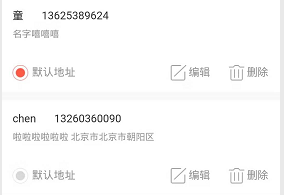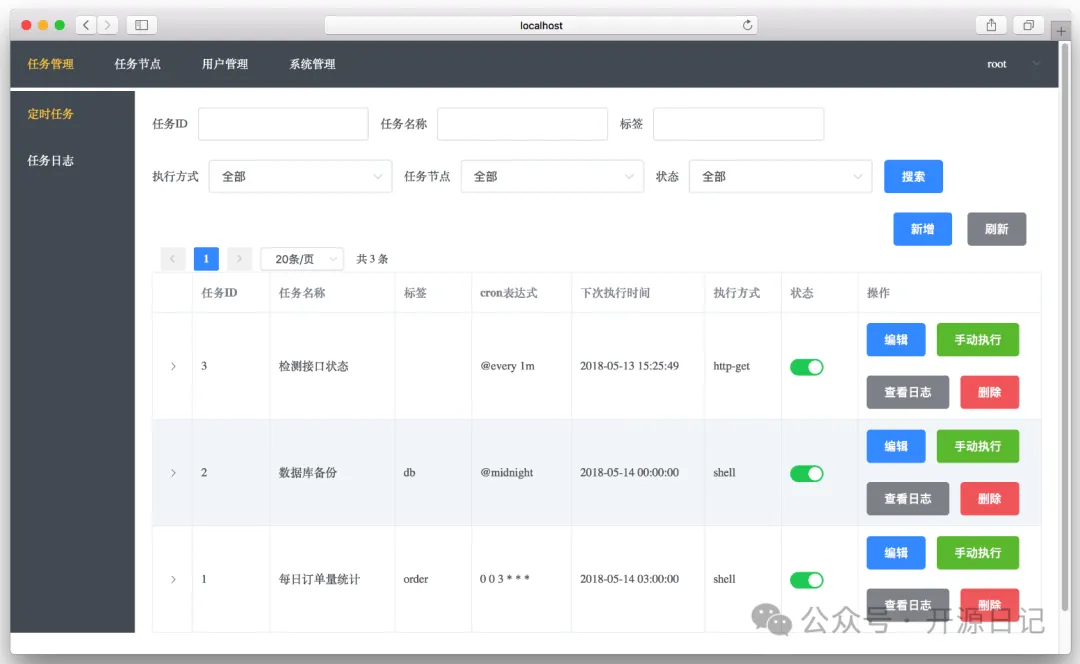本文主要介绍了Python通过tkinter实现百度搜索的示例代码,分享给大家,具体如下:
\"\"\"
百度搜索可视化
\"\"\"
import tkinter
import win32api
from selenium.webdriver import Chrome
entry = None
def callback():
global entry
keywords = entry.get()
if not keywords:
win32api.MessageBox(0, \'请输入搜索关键字\', \'提示\', 0)
return
chrome = Chrome()
chrome.get(\'https://www.baidu.com/\')
chrome.find_element_by_id(\'kw\').send_keys(keywords)
chrome.find_element_by_id(\'su\').click()
# bilibili关键字搜索
# chrome.get(\'https://www.bilibili.com/\')
# chrome.find_element_by_xpath(\'//form[@id=\"nav_searchform\"]/input\').send_keys(keywords)
# chrome.find_element_by_xpath(\'//div[@class=\"nav-search-btn\"]/button\').click()
def main():
global entry
tk = tkinter.Tk()
# tk.resizable(width=False,height=False) # 固定窗体大小?无效
tk.title(\'百度搜索\')
# 1.设置窗体居中
# screenwidth = tk.winfo_screenwidth() # 获取屏幕宽度
# screenheight = tk.winfo_screenheight() # 获取屏幕高度
# # 计算窗体大小,位置参数,width,height:窗体宽高
# width = 100
# height = 50
# size = \'%dx%d+%d+%d\' % (width, height, (screenwidth - width) / 2, (screenheight - height) / 2)
# tk.geometry(size) # 设置窗体位置为屏幕居中
# 2.设置窗体右下角,无效
# screenwidth = tk.winfo_screenwidth() # 获取屏幕宽度
# screenheight = tk.winfo_screenheight() # 获取屏幕高度
# print(screenwidth,screenheight)
# # 计算窗体大小,位置参数,width,height:窗体宽高
# width = 100
# height = 50
# size = \'%dx%d+%d+%d\' % (width, height, (screenwidth - width), (screenheight - height))
# tk.geometry(size) # 设置窗体位置为屏幕右下角
# 获取窗体x,y
# tk.update()
# print(tk.winfo_x())
# print(tk.winfo_y())
tk.geometry(\'+0+0\') # 固定屏幕左上角
# tk.geometry(\'+1440+770\')
entry = tkinter.Entry(tk)
entry.pack()
button = tkinter.Button(tk, text=\'百度一下\', command=callback)
button.pack()
tk.mainloop()
if __name__ == \'__main__\':
main()
补充:python模拟百度搜索点击链接
# coding: utf-8
import os
import time
import requests
import urllib.parse
from bs4 import BeautifulSoup
from urllib.parse import urlparse
from fake_useragent import UserAgent
from multiprocessing.pool import ThreadPool
LOCATIONS = {}
GLOBAL_THREAD = 500
GLOBAL_TIMEOUT = 50
def get_links(keyword, generator, pages):
links = []
for page in range(int(pages.split(\"-\")[0]), int(pages.split(\"-\")[1]) + 1):
for genera in range(int(generator.split(\"-\")[0]), int(generator.split(\"-\")[1]) + 1):
links.append(
\"http://www.baidu.com.cn/s?wd=\" + urllib.parse.quote(keyword + str(genera)) + \"&pn=\" + str(page * 10))
return links
def get_page(url):
headers = {\"user-agent\": UserAgent().chrome}
req = requests.get(url, headers=headers)
req.encoding = \"utf-8\"
soup = BeautifulSoup(req.text, \"lxml\")
for link in soup.select(\"div.result > h3.t > a\"):
req = requests.get(link.get(\"href\"), headers=headers, allow_redirects=False)
if \"=\" in req.headers[\"location\"]:
root = urlparse(req.headers[\"location\"]).netloc
LOCATIONS[root] = req.headers[\"location\"]
def baidu_search():
try:
os.system(\"cls\")
print(\"-\" * 56 + \"\\n\")
print(\"| BaiduSearch Engine By 美图博客[https://www.meitubk.com/] |\\n\")
print(\"-\" * 56 + \"\\n\")
keyword = input(\"Keyword: \")
generator = input(\"Generator(1-10): \")
pages = input(\"Pages(0-10): \")
start = time.time()
pool = ThreadPool(processes=GLOBAL_THREAD)
pool.map(get_page, get_links(keyword, generator, pages))
pool.close()
pool.join()
end = time.time()
path = r\"D:\\Desktop\\result.txt\"
save_result(path)
print(\"\\nSava in %s\" % path)
print(\"Result count: %d\" % len(LOCATIONS.values()))
print(\"Running time: %ds\" % (end - start))
except:
print(\"\\nInput Error!\")
exit(0)
def save_result(path):
with open(path, \"w\") as file:
for url in list(LOCATIONS.values()):
file.write(url + \"\\n\")
baidu_search()
© 版权声明
THE END










暂无评论内容